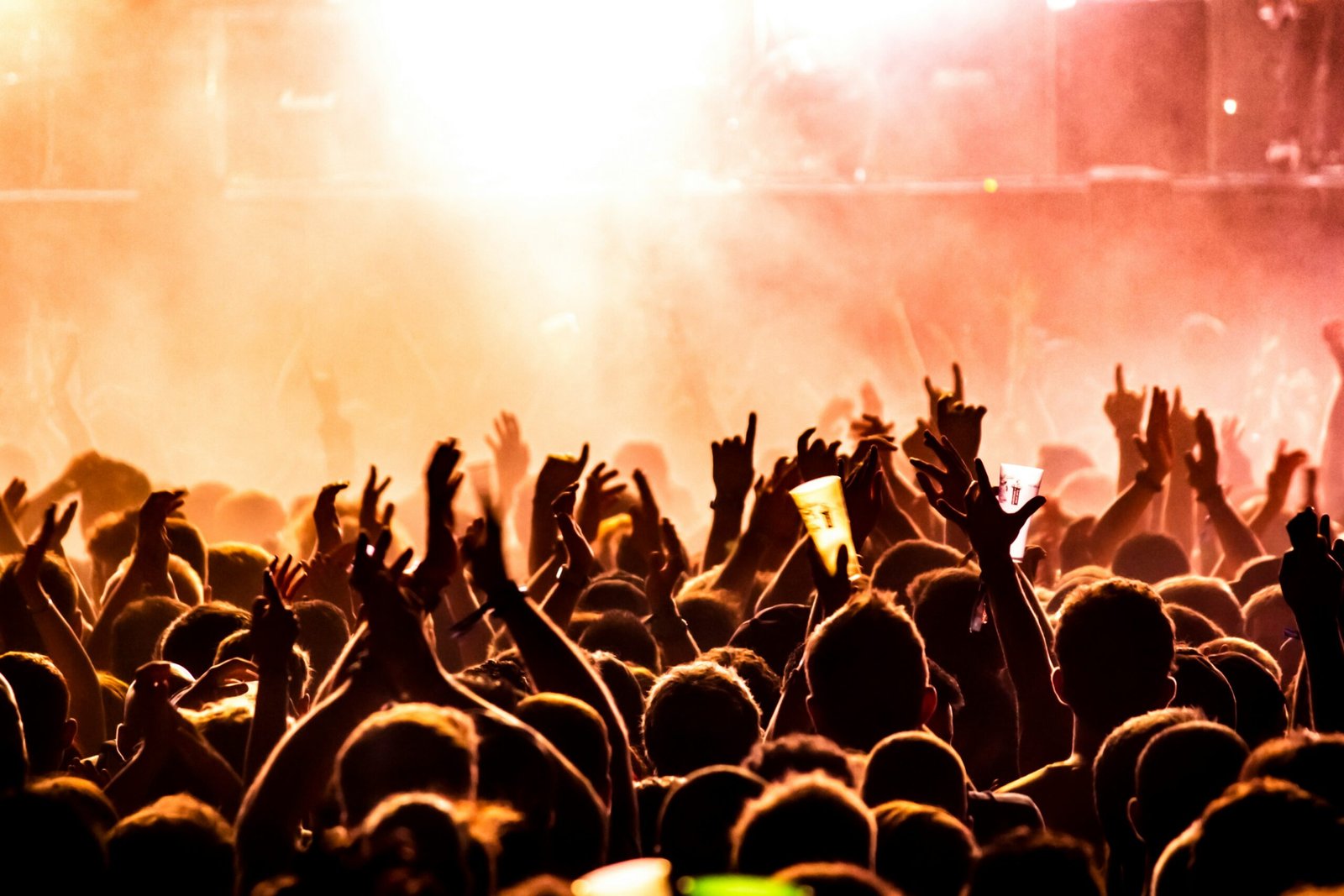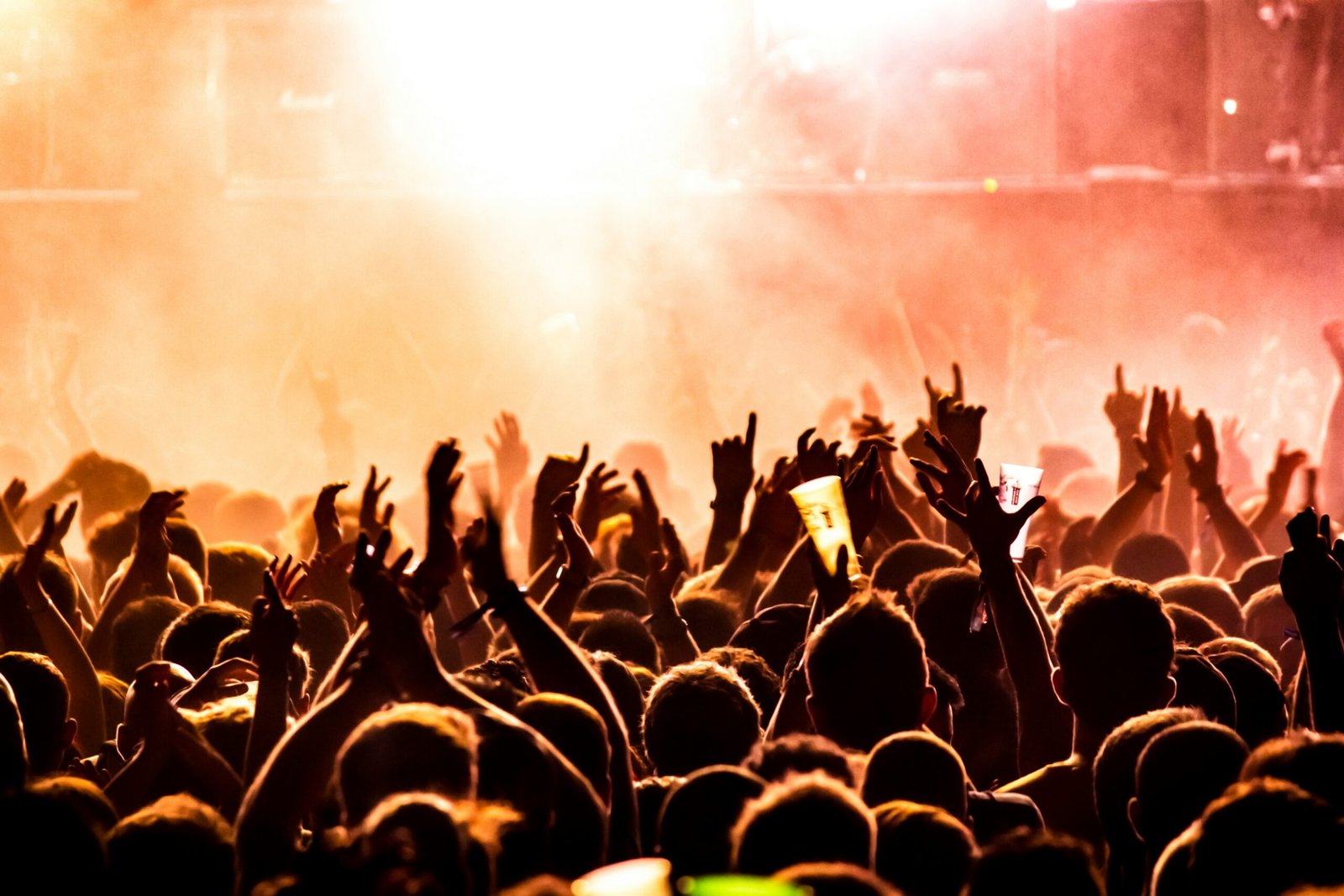
One of the ways entertainment affects our social interactions is through the way we consume and discuss it. With the rise of streaming platforms and social media, we now have the ability to watch movies and TV shows at any time and share our thoughts and opinions with others instantly. This has led to the emergence of online communities and fan cultures, where people come together to discuss their favorite shows, movies, and characters.
These online communities have created a sense of belonging and connection among individuals who share similar interests. They provide a platform for people to engage in meaningful conversations, share their thoughts, and form friendships based on their shared love for a particular form of entertainment. For example, a fan of a popular TV show can join a subreddit dedicated to the show and interact with other fans, discussing plot theories, analyzing character development, and even organizing meet-ups and conventions.
Furthermore, entertainment has also influenced the way we form and maintain relationships. In the past, people would often bond over shared experiences, such as going to the movies or attending live performances. While these activities still exist, the digital age has introduced new ways of connecting with others through entertainment.
For instance, online dating platforms have incorporated entertainment preferences as a way to match potential partners. Users are asked to list their favorite movies, TV shows, and music, which helps in finding someone with similar interests. This not only acts as an icebreaker but also provides a common ground for the initial stages of a relationship.
Moreover, entertainment has also become a topic of conversation in social settings. Whether it’s discussing the latest episode of a popular TV show or debating the merits of a new movie, entertainment has become a shared experience that brings people together. These conversations not only foster social connections but also allow individuals to express their opinions, learn from others, and develop their communication skills.
However, it is important to acknowledge that entertainment can also have negative effects on social interactions and relationships. Excessive consumption of entertainment can lead to isolation and withdrawal from real-life interactions. Spending hours binge-watching a TV show or playing video games can result in neglecting personal relationships and missing out on social opportunities.
In conclusion, entertainment plays a significant role in shaping our social interactions and relationships. It provides a platform for like-minded individuals to connect and form communities, while also influencing the way we bond with others and engage in conversations. However, it is crucial to find a balance between entertainment and real-life interactions to ensure that it enhances our relationships rather than hinders them.
1. Changes in Communication Patterns
One of the most noticeable effects of entertainment on social interactions is the change in communication patterns. With the rise of social media platforms and online gaming, people are increasingly relying on digital communication rather than face-to-face interactions. While this can be convenient and efficient, it also leads to a decrease in the quality of interpersonal connections.
Online interactions lack the non-verbal cues and nuances that are present in face-to-face communication. This can result in misunderstandings and misinterpretations, leading to strained relationships. Additionally, the constant distractions from entertainment can make it difficult for individuals to fully engage in meaningful conversations, further impacting the depth and quality of their relationships.
Furthermore, the prevalence of entertainment in today’s society has led to a shift in the way people communicate. In the past, social gatherings and events provided opportunities for individuals to interact and engage in meaningful conversations. However, with the advent of smartphones and other portable devices, people are often more focused on their screens than on the people around them.
For example, it is not uncommon to see a group of friends sitting together at a café, each engrossed in their own digital world, rather than engaging in face-to-face conversation. This shift in communication patterns has resulted in a decrease in the amount of time spent connecting with others on a deeper level. Instead, interactions have become more superficial and transactional, with individuals often using digital platforms to communicate brief messages or share updates.
This change in communication patterns has also affected the way people express themselves. In the past, individuals would rely on verbal and non-verbal cues to convey their emotions and thoughts. However, with the rise of emojis and abbreviations, communication has become more concise and less nuanced. While this may be efficient in some cases, it can also lead to misunderstandings and misinterpretations, as the intended tone or meaning behind a message may not be accurately conveyed.
Overall, the changes in communication patterns brought about by entertainment have had a significant impact on social interactions. While digital communication can be convenient and provide opportunities for connection, it also comes with its limitations. As individuals become more reliant on entertainment for communication, it is important to recognize the potential drawbacks and make an effort to maintain meaningful and authentic connections with others.
2. Influence on Social Skills
Another aspect to consider is the influence of entertainment on social skills. Excessive consumption of entertainment, especially passive forms such as binge-watching television shows or scrolling through social media feeds, can hinder the development of essential social skills.
Engaging in face-to-face interactions provides opportunities for practicing communication skills, empathy, and understanding. However, when individuals spend a significant amount of time consuming entertainment, they may miss out on these valuable learning experiences. As a result, they may struggle with building and maintaining meaningful relationships in the long run.
One specific area where entertainment can impact social skills is in the development of effective communication. In face-to-face interactions, individuals have the opportunity to observe and interpret non-verbal cues such as body language and facial expressions. These cues play a crucial role in understanding others’ emotions, intentions, and thoughts. However, when individuals spend excessive time consuming entertainment, they may become less attuned to these non-verbal cues, leading to a decline in their ability to effectively communicate and connect with others.
In addition to communication skills, entertainment can also impact the development of empathy. Empathy is the ability to understand and share the feelings of others, and it is a fundamental aspect of building strong relationships. Through entertainment, individuals are exposed to various characters and storylines that can evoke different emotions. This exposure can enhance their ability to empathize with others and see situations from different perspectives. However, if entertainment consumption becomes excessive, individuals may become desensitized to the emotions portrayed in the media, leading to a diminished capacity for empathy in real-life situations.
Furthermore, entertainment can influence individuals’ understanding of social norms and behaviors. Television shows, movies, and social media platforms often depict certain behaviors and attitudes that may not align with real-life situations. When individuals consume entertainment excessively, they may start to perceive these depictions as the norm and model their behavior accordingly. This can result in a distorted understanding of appropriate social conduct and can hinder their ability to navigate social interactions effectively.
It is important to note that not all forms of entertainment have a negative impact on social skills. In fact, certain types of entertainment, such as group activities, interactive games, or participating in community events, can enhance social skills and promote healthy relationships. The key lies in finding a balance between consuming entertainment and engaging in real-life social interactions.
3. Impact on Emotional Connection
Entertainment can also have a profound impact on the emotional connection between individuals. While entertainment can evoke various emotions, such as laughter or excitement, it can also create a sense of detachment from real-life experiences. This detachment can be attributed to the immersive nature of entertainment mediums, such as movies and television shows.
For instance, spending excessive time watching fictional television shows or movies can lead to a disconnection from reality. When engrossed in these captivating narratives, individuals may find themselves emotionally invested in the lives of fictional characters, often neglecting their own emotions and relationships. This constant exposure to fictional worlds can make it challenging for individuals to empathize with others and understand their emotions in real-life situations. The ability to relate to others and connect on an emotional level may become hindered as individuals become more engrossed in the fictional realities presented in entertainment media.
Moreover, the constant exposure to idealized portrayals of relationships in entertainment media can create unrealistic expectations, which can negatively affect real-life relationships. In many movies and television shows, relationships are often depicted as perfect, with minimal conflicts and constant romance. This idealized portrayal can create a distorted perception of what real relationships should be like, leading individuals to have unrealistic expectations of their own relationships.
As a result, individuals may find it difficult to navigate the complexities and challenges that come with real-life relationships. They may become dissatisfied when their relationships do not live up to the idealized standards portrayed in entertainment media. This dissatisfaction can strain relationships and hinder the emotional connection between individuals.
Furthermore, the emotional impact of entertainment can extend beyond personal relationships. It can also affect the way individuals perceive and interact with the world around them. For example, exposure to violent or graphic content in entertainment media can desensitize individuals to real-life violence, making it harder for them to empathize with victims and comprehend the gravity of certain situations.
In conclusion, entertainment has a multifaceted impact on emotional connection. While it can evoke a range of emotions, it can also create a sense of detachment from reality, hinder empathy and understanding in relationships, and distort perceptions of real-life experiences. It is important for individuals to be mindful of the influence of entertainment on their emotional well-being and strive for a balance between entertainment consumption and real-life connections.
Moreover, entertainment can also create opportunities for people to explore new interests and hobbies together. For instance, attending a live concert or a theater performance can introduce individuals to different genres of music or theater, sparking conversations and discussions about their experiences.
Additionally, entertainment events such as music festivals or sports games can bring people together in a festive and lively atmosphere. These events often attract a large crowd of enthusiasts who share a common passion, creating a sense of community and belonging. People can connect with others who have similar interests, forming new friendships or strengthening existing ones.
In some cases, entertainment can even be a catalyst for personal growth and self-discovery. For example, participating in a dance class or joining a community theater group can help individuals develop new skills, boost their confidence, and gain a sense of accomplishment. These activities not only provide a platform for self-expression but also offer opportunities to meet like-minded individuals who share similar aspirations.
Furthermore, entertainment can serve as a bonding tool within families. Family movie nights, where everyone gathers to watch a film together, can create cherished memories and strengthen familial bonds. Similarly, engaging in board games or puzzles can encourage cooperation and healthy competition among family members, fostering a sense of unity and togetherness.
Overall, entertainment has the power to bring people closer and create lasting connections. Whether it is through shared experiences, exploring new interests, or engaging in activities as a family, entertainment provides numerous opportunities for bonding and building relationships.
5. Balancing Entertainment and Real-Life Interactions
While entertainment undoubtedly has an impact on social interactions and relationships, it is essential to find a balance between digital entertainment and real-life interactions. It is crucial to prioritize face-to-face communication and invest time in building meaningful connections.
Here are a few tips to strike a healthy balance:
- Limit screen time and allocate dedicated time for real-life interactions.
- Engage in activities that promote face-to-face communication, such as hobbies, sports, or volunteering.
- Practice active listening and empathy during conversations to deepen relationships.
- Be mindful of the impact of entertainment on your emotional well-being and relationships.
While digital entertainment can provide us with endless hours of amusement, it is important not to let it consume our lives entirely. Spending too much time on screens can lead to a decrease in real-life interactions, which are crucial for the development and maintenance of healthy relationships. By setting limits on our screen time and dedicating specific periods for face-to-face communication, we can ensure that we are not neglecting the people around us.
Engaging in activities that promote face-to-face communication is another effective way to balance entertainment and real-life interactions. Hobbies, sports, or volunteering opportunities can provide us with opportunities to connect with others on a deeper level. Whether it’s joining a book club, participating in a local sports team, or volunteering at a community center, these activities not only allow us to enjoy ourselves but also foster meaningful connections with others who share similar interests.
Furthermore, practicing active listening and empathy during conversations is crucial for building and strengthening relationships. By truly listening to others and showing genuine interest in what they have to say, we can create a safe and supportive space for open communication. This not only helps us understand others better but also allows us to establish a sense of trust and intimacy in our relationships.
Lastly, it is important to be mindful of the impact of entertainment on our emotional well-being and relationships. While entertainment can provide temporary escape and enjoyment, excessive consumption can lead to negative consequences. It is essential to regularly assess how entertainment is affecting our mental health and relationships. If we notice that it is causing distress or hindering our ability to connect with others, it may be necessary to make adjustments and find healthier alternatives.
In conclusion, finding a balance between digital entertainment and real-life interactions is crucial for maintaining healthy relationships and overall well-being. By limiting screen time, engaging in face-to-face activities, practicing active listening, and being mindful of the impact of entertainment, we can foster meaningful connections and create a fulfilling social life.




